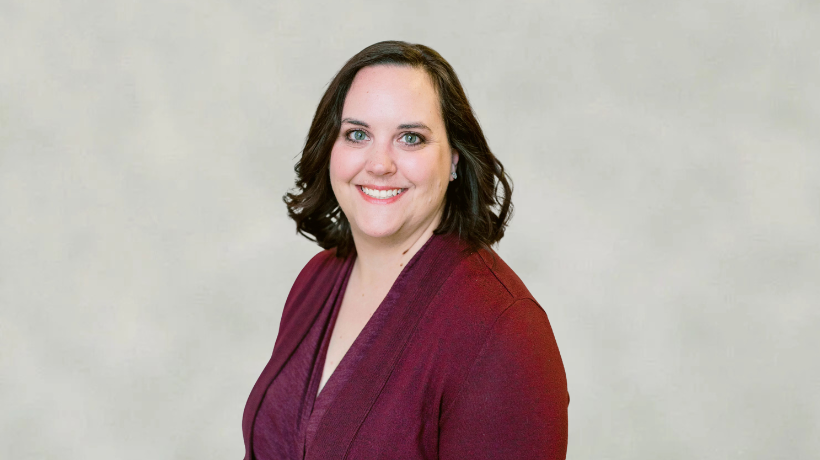Leadership Pathways: Christine A. Cabelka, PT, MA, PhD, PWCS, CLT
Positions Served
Chair CSM Poster/Platform abstract review committee; Director of Research; Director-at-Large

Motivation & Decision to Run
I ran for my elected position as a way to increase the voice for research within the Academy. The opportunity to serve in an elevated role within the Academy and the profession helped me decide to say "yes" to leadership. Advice to someone who feels unsure would be to make sure you have the time and desire to commit. Everything else can be learned. Especially on the Board of Directors, you are not alone or on an island. The Board is a great place to witness shared governance in action and have a group of people available to support you and to learn from.
Skills & Professional Growth
Through my 2 roles on the Board of Directors, I learned the skills of strategic planning and goal setting. Being able to step back and look at the big picture of where we want to be in the future and establishing actions now that help us get there has been invaluable in my academic career. These positions have helped me strengthen my communication skills as well as other leadership skills. These roles have prepared me for leadership positions within my Physical Therapy Department as well as our higher-level College committees. Additionally, I feel that the Director positions on the board have given me the confidence in feeling more prepared to run for a higher-level Board Position in the future.
Involvement & Pathways
I first became involved in the Academy as a WH Resident. While not specific to the Academy, my first volunteer role was as an item writer for the WCS exam. The networking there led me to opportunities in the Academy as a reviewer of CSM poster/platform abstracts, with the eventual transition into chair of that committee. I first heard about volunteer and election opportunities at an Academy general business meeting at CSM, well before I even thought about becoming involved in the Academy. My Academy volunteer experiences have shaped how I see our specialty within the profession and the opportunities we have to lead the way in so many important profession discussions.
Impact & Benefits
Professionally, I have gained internal college recognition as a leader in my field, which has helped with the promotion and tenure process at my institution. I personally have gained a sense of accomplishment and pride in being part of something bigger than myself and being able to contribute to driving our specialty and profession forward. One takeaway from my experience on the board is how powerful it is to have a group of people buy in to a shared vision. The most robust conversations and important decisions happen when everyone feels safe to disagree and offer alternative viewpoints while at the same time, keeping the shared end goal in mind. I feel so fortunate to be in this place, at this time, with this group of people. What we can accomplish when we support and trust one another is limitless.
Value of Service
I think it is important to get involved as a volunteer because the volunteers are the "boots on the ground" people who are getting the work done. Our organization thrives as much as it does because we have passionate volunteers who are able to give their time and passion to the shared Academy mission and vision. Without volunteers, the Academy wouldn't be able to do all the things it does.
What would you tell a colleague who doesn’t think they’re “qualified enough” to run?
Similar to my statement earlier, I truly believe that if you can commit to the time the position takes, and that you have ideas that you feel are valuable, the rest of it will come in time. Again, no one is alone in anything they do, and there are other volunteers willing and able to support you as you learn the role.
About Christine A. Cabelka, PT, MA, PhD, PWCS, CLT
Christine Cabelka earned her master’s degree in Physical Therapy in 2005 from the College of St. Scholastica. She spent the first 4 years of her professional career working in Seattle, WA, where her passion for treating people with pelvic conditions started. Christine pursued and completed a Women’s Health Physical Therapy Residency at Duke University from 2010 to 2011. During her residency, she gained mentored experience treating complex pelvic cases for all genders. She also completed a certificate in lymphedema management and spent time working with patients following cancer diagnosis and with lymphedema. Upon completing her residency, Christine worked as the lead Women’s Health Therapist at Johns Hopkins Hospital in Baltimore, MD. In 2013, Christine decided to pursue her PhD training in Rehabilitation Science, where she focused her research on how ovarian hormones (estrogen and progesterone) affected muscle function and physical activities in a model of menopause. Following completion of her PhD training, Christine accepted a position as an Assistant Professor of Physical Therapy at the College of St. Scholastica in 2019. Continuing to have an active role in clinical care with IMT allows Christine to be a role model and bring her clinical experience into her teaching examples for her students.



